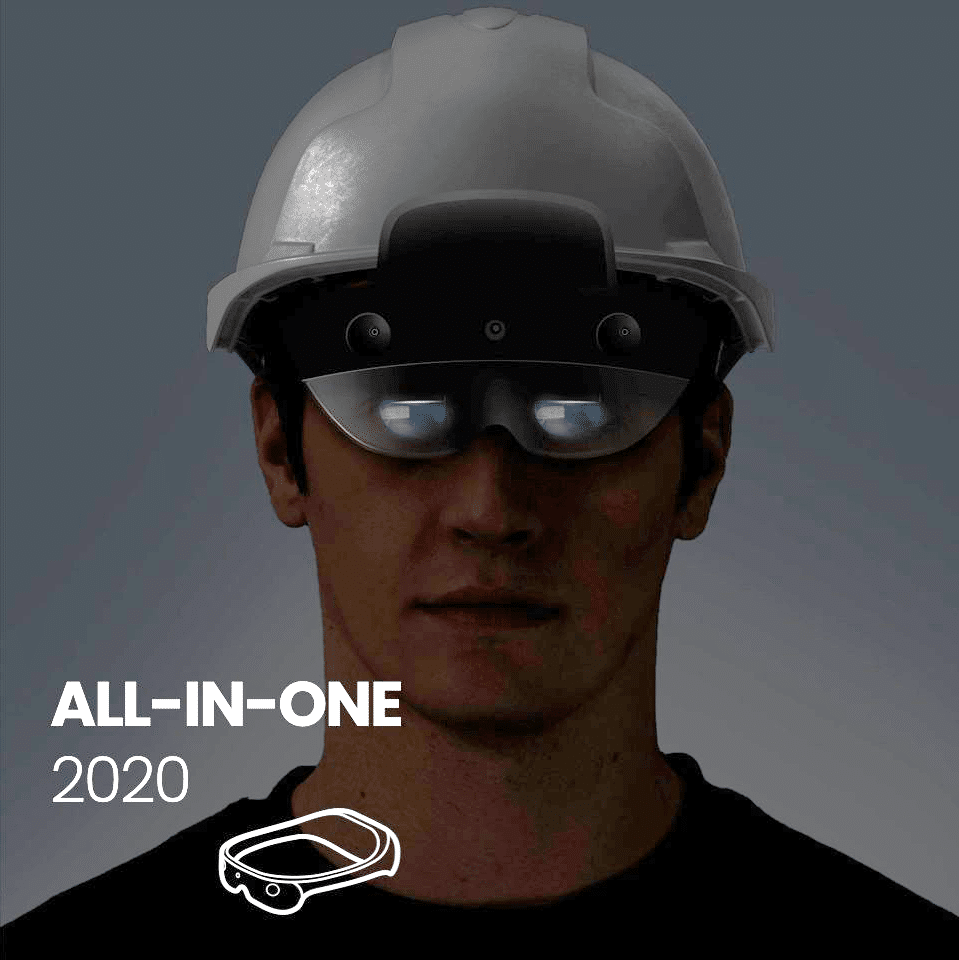Nreal is teasing an enterprise-focused standalone AR headset for launch in Q4 2020, a variant of its Nreal Light AR glasses.
The company released a darkened concept image of the headset, which we’ve brightened here:

This would be Nreal’s second product. Their first, Nreal Light , is pair of AR glasses intended for consumers. Nreal planned to ship the Light in 2019, but delayed until spring 2020. However, production was recently halted due to the novel coronavirus. Nreal seems to expect to be able to produce hardware at scale later this year though, it seems.
The Nreal Light glasses are tethered to either a high end recent Android phone or an Nreal compute pack. But Nreal’s new all-in-one would integrate the chip into the headset, preferred by professionals and enterprise because it’s easier to deploy and maintain one device per user than two.
From the looks of the sketches on the marketing materials, the chip and battery are likely in the backplate on the rear of the user’s head.

Nreal expanding to enterprise mirrors the path of Magic Leap One, which also started with consumers. For Magic Leap, this followed a report from The Information claiming the company sold just 6,000 units in the first six months, in contrast to its target of 100,000 per year — itself a revision from the CEO’s expectation of 1 million.
AR headsets haven’t appealed to consumers yet, due to the high price and relative infancy of the still-bulky technology. We’re still years away from the realization of all day lightweight AR glasses many dream of. We’ll see if Nreal is able prove an early adopter market with Light when it is finally able to manufacture at scale.
This is the opposite of Microsoft’s strategy. Its HoloLens found adoption by enterprise and militaries. Large companies and governments can afford the sticker price, and AR can be useful for training, collaboration, and visualization.
Nreal clearly wants in on this market, given the company has already built much of the technology needed by developing consumer glasses. Whether it can build the same software ecosystem and platform is yet to be seen, but support for regular Android apps should make this task easier.
Nreal hasn’t released a price yet, but told VentureBeat it will be higher than the $1200 Light + compute pack, but “competitive”. Magic Leap One is priced at $3000 and HoloLens 2 is priced at $3500.

























